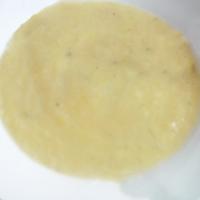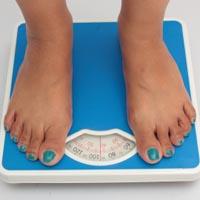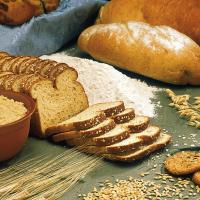Nutritional Support For Low-carb Dieters
The popularity of protein-based diets, which limit carbohydrates, seems to be growing at an extraordinary rate. These diets seem to promise dieters that they can eat all they want and still lose weight. However, there is one condition; the dieter must give up all carbohydrate-containing foods, which includes bread, pasta, fruit, sweet corn, and potatoes. Because more than half of Americans are overweight or obese, we all seem to be looking for a weight loss program that works. There is no doubt that the biggest appeal of the low-carb diets is the type of foods you can eat. What is even more appealing is that your eggs can be fried and your burgers can be grilled in grease and topped with a thick slice of cheese because low-carb dieters can eat three to four ounces of certain cheeses every day. However, those on a low-carb diet can't have toast with their fried eggs or a bun for their hamburger. Although certain types of vegetables are allowed in a low-carb diet, the types and amounts are very limited. Absolutely no fruits, potatoes, corn, peas, rice, pastas, or bread is allowed, at least during the first phases of low-carb diets. As more and more typical dieters learn how to count calories, followers of low-carb diets learn how to count their daily intake of carbohydrates.
Carbohydrates provide energy, fiber, and naturally occurring sugars and the majority come from plants. According to their structure, or how the carbon, hydrogen, and oxygen are linked together, carbs are classified as either complex" or simple." Simple carbs (sugars) are quickly absorbed into the bloodstream, where they trigger a rise in blood sugar. This rise causes insulin to be released from the pancreas, accelerating the conversion of calories to fat. Excess blood sugar that is not needed immediately is stored in the muscles and liver. Simple carbs can be found in abundance in table sugar, candy, honey, soft drinks, white bread, and highly refined cereals. Complex carbs (starches) take much longer to break down. The fiber that is found in complex carbs keeps sugars from entering the bloodstream as quickly after a meal. Complex carbs are found in fruit, vegetables, and whole grain breads and pastas.
Doctors believe that by restricting your intake of carbohydrates, you focus your body on using stored fat as an energy source. This makes the body less likely to store fat when using it as its primary fuel. If you are reducing carbs, you are also most likely reducing the total amount of calories you consume each day.
Many healthcare professionals and researchers are concerned with the potential health risks of a low-carb diet. Research has shown that consuming large amounts of animal fat and protein is linked with an increased risk for damage to the kidneys and hearts, as well as an increased risk for cancer. One consequence of burning fat instead of glucose for energy is the development of ketosis, which normally occurs only during starvation, but can also occur after removing carbohydrates from the diet. Ketosis causes uric acid to build up in the blood, leading to gout. Diets consisting mainly of protein, cholesterol, and saturated fats, can also greatly increase the risk of heart disease and can stress and damage the kidneys. A recent study found that women eating diets that were high in animal fat were at increased risk for breast cancer. Although it is not harmful, excess ketones in the body can result in quite bad breath.
If you do decide to follow a low-carb diet, there are several nutritional supplements you should consider taking to keep you healthy while you take off the weight. A daily multivitamin is a must because you deprive yourself of essential vitamins and minerals such as the B vitamins, calcium, and potassium, when eliminating entire food groups. The B vitamins are water-soluble and can't be stored, which means they have to be taken more than once a day to maintain optimum nutrition. They are essential for energy and your brain. Calcium and potassium, which have many functions in the body, keep your heart, bones, and kidneys healthy. You should look for a high quality multiple that specially formulated for your age and gender. Because you will be consuming primarily animal-based proteins with a low-carb diet, supplemental digestive enzymes are needed to maximize the breakdown and digestion of nutrients in these foods. Without these enzymes, digestion cannot take place, resulting in gas, bloating, and sub-optimal nutrient levels. When limiting carb intake, you will increase your exposure to cholesterol from animal-based foods. Phytosterols and pantethine can help to minimize the absorption of cholesterol. Research has proven that phytosterols work in the intestines to block the absorption of cholesterol, while pantethine can support reduced cholesterol production in the body. At least 600 mg of pantethine is needed each day before any significant benefits will be reached. When the two are used together, better cholesterol lowering benefits are provided, so look for supplements containing both. Studies have shown that following a low-carb diet and taking fish oil can lead to greater weight loss and improved cholesterol and triglyceride levels than just following a low fat diet without the supplemental oils. Fish oil, which reduces homocysteine, total cholesterol, blood pressure, and increases the good" HDL cholesterol, should come from cold water ocean fish that are free of toxins and contaminants. Because our oceans have become more and more polluted, so have our fish. Cheap fish sources can actually cause more harm than good. The most effective and the safest fish oil contain lemon and rosemary, which makes sure the oil retains its natural stability. In order to lose weight, we must increase our metabolism. The thyroid gland, which influences our metabolic rate, can be fed" with nutritional supplements that are specifically formulated for thyroid function. These include: vitamin B12, iodine from kelp, the minerals magnesium, zinc, copper, manganese, and molybdenum, and thyroxin-free thyroid substance. Be sure to drink at least eight glasses of water each day. Stay active by walking the dog, running in the park with your kids, taking the stairs to work, or any other physical activity. Having an exercise buddy can make trips to the gym a lot more fun. Make sure to set realistic goals for yourself and don't expect to see overnight changes.
Related Articles
-
Low Carb Chicken
Low
-
How Low Carb Low Glycemic Whey Protein Supplements Help Tone Body Muscles?
Low carb low glycemic whey protein supplements strengthen b
-
Dangers of Refined Carbs
Not
-
Celebrity Low Carb Diet Fans
Hollywood is full of a wide range of celebrities choosing their meals
-
Five Misconceptions About Low-Carb Diets (I): the Atkins Diet
When the Atkins diet was published, it gave rise to many co
-
Low Carb Diet Reviews Determine The Ideal Product For You
If you want to learn more about a product available in the market the
- DON'T MISS
- What Are The Pros And Cons Of Low Carb Diets?
- Low Carb Priciples For Dieters
- Using Food to Heal Emotions
- Carb Calories
- Tips For Reducing Your Weight With Low Carb Diets
- Roasted Cabbage with Bacon
- Low Carb And Glycemic Whey Protein Supplement
- The Big Question: Are Low Carb Diets Safe?
- Squash Pie Recipe Makeover
- Pizza, Without the Guilt




